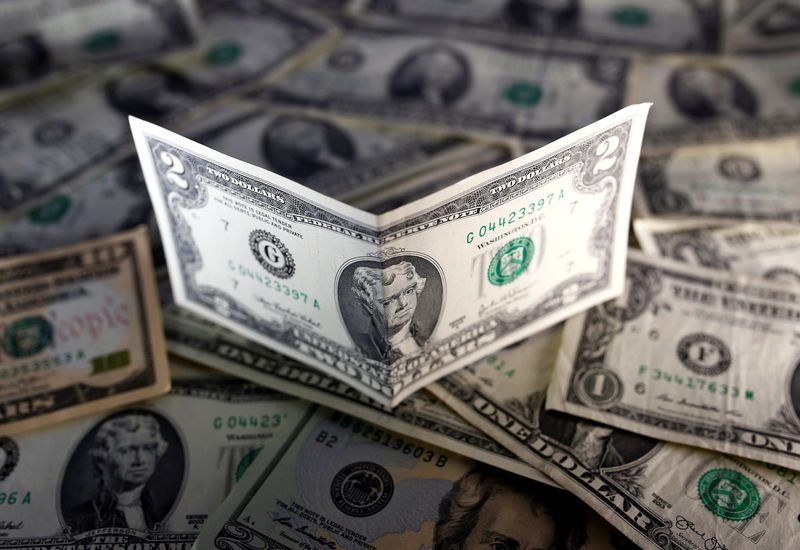By Caroline Valetkevitch
NEW YORK (Reuters) – The U.S. dollar was up slightly against the euro and yen on Tuesday as U.S. stocks sold off, while investors were trying to position for next week’s expected interest rate hike from the U.S. Federal Reserve.
The dollar’s activity was also more muted after it rose sharply in the previous session following data showing U.S. services industry activity unexpectedly picked up in November, which prompted investor speculation the Fed may lift rates more than recently projected. Traders currently expect a half-point hike from the Fed in its announcement Dec. 14.
“There’s not a lot of fresh incentives,” said Marc Chandler, chief market strategist at Bannockburn Global Forex in New York. “There was a lot of price action yesterday,” but the big focus is on next week’s Fed meeting.
Next week’s calendar also includes the release of the key consumer price index data for November.
The dollar may be benefiting from bearish sentiment in equities, Chandler said, noting that the greenback “has tended to benefit from a risk-off environment.” All three major U.S. stock indexes ended down sharply on Tuesday, with the S&P 500 declining for a fourth straight session.
The U.S. dollar index, which measures the currency against six major peers, remains up roughly 10% for the year so far. It was last up 0.3% on Tuesday.
The euro was down 0.2% against the dollar at $1.0465, while the dollar was up 0.1% against the Japanese yen.
European Central Bank policymaker Constantinos Herodotou said on Tuesday interest rates will go up again but are now “very near” their neutral level.
The dollar was up 0.5% against the Canadian dollar ahead of the Bank of Canada’s rate decision on Wednesday. Traders are pricing in a 73.3% chance of a dialed-down 25 basis-point hike from the BoC, although a slim majority of economists polled by Reuters are expecting a 50 basis point rate hike.
The Australian dollar was last down 0.1% at $0.6687. It rose earlier after the Reserve Bank of Australia (RBA) raised rates for the eighth time in as many months. Also, the RBA said it was not on a preset course to tighten policy but inflation was still high.
The Western price cap on Russian seaborne crude, which came into force on Monday, may start to show its impact on the energy market soon, said Francesco Pesole, FX strategist at ING.



